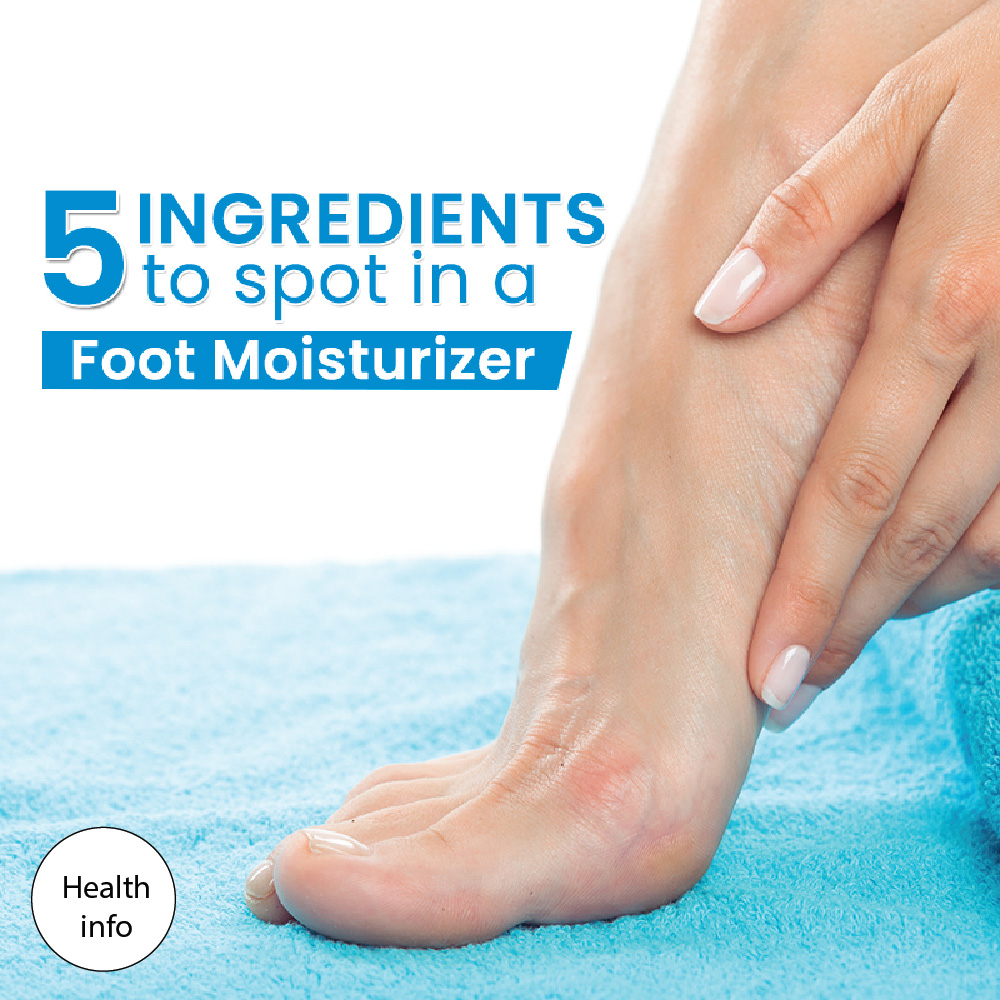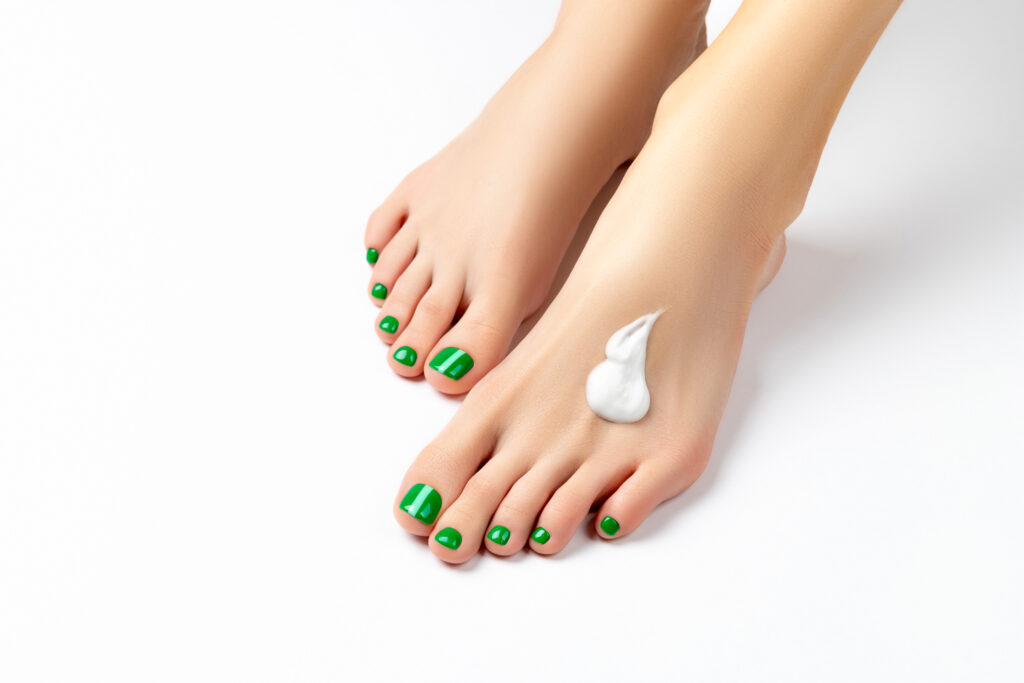- Home
- Health Center
- Health Info
- 5 Ingredients To Spot in a Foot Moisturizer
How to Choose
5 Ingredients To Spot in a Foot Moisturizer


Whether you run marathons or prefer staying at home on the weekends, it’s likely that we spend long hours on our feet every day. Undeniably, our precious feet deserve some self-care and pampering but with so many foot moisturizers on the market using common natural emollient bases such as glycerin, lanolin, mineral oil and petrolatum, how do we decide which to try?
Firstly, identify the concern with your foot care. Broadly, they are:
- Dry and cracked skin
- Flaky or peeling skin
- Calluses or tough skin
- Maintain skin hydration
Subsequently, find a suitable foot moisturizer. The following ingredients may perform miracles on your feet when applied appropriately.
1. Urea
Classified as a humectant, urea draws water into the skin for hydration. While products that contain 5-10% urea act as moisturizers, the exfoliating effects of urea generally come in concentrations of 10-25%. With the higher concentrations of urea, you can bid farewell to rough skin, calluses and cracked heels.1
√ DRY SKIN √ CALLUSES √MAINTAIN √ HYDRATION √ PEELING SKIN
2. Exfoliating acids (skin-smoothers) such as Alpha-hydroxy acids (AHAs) and beta-hydroxy acid (BHAs)
It’s no surprise that dry and flaky skin could benefit from some exfoliating. If you need an ingredient to penetrate a thickened layer of skin, look no further than AHAs and BHAs like salicylic acid, glycolic acid or lactic acid to help smoothen skin on the feet.2 Many foot moisturizers contain a small amount of these exfoliating acids to gently slough off peeling skin for a smoother finish.
√ CALLUSES √ PEELING SKIN
3. Fatty acids such as ceramides and linoleic acid
Naturally, your skin is made up of a healthy barrier of fatty acids to protect it from dryness and infection. Ceramides and linoleic acids in foot moisturizers improve your skin barrier function, promote elasticity and prevent dry, irritated and itchy skin.3
√ DRY SKIN √CALLUSES √MAINTAIN HYDRATION
4. Plant oils like coconut oil, jojoba oil and shea butter in a natural emollient base
Plant oils are able to easily penetrate the upper layers of the skin due to their similarity with the skin’s own natural lipids.4 By occluding the skin (Stratum Corneum), they limit the escape of water, promoting hydration and enhancing skin barrier function.5 Oils such as jojoba oil are even able to mimic the skin’s natural sebum and hence, balance oil production.4
√ DRY SKIN √MAINTAIN HYDRATION
5. Dimethicone
Dimethicone is used as an emollient in moisturizers. It occludes the spaces between dead cells on the surface of the skin, creating a water-resistant film that maintains hydration and keeps out irritants.In foot moisturizers, dimethicone is a skin protectant that helps prevent and protect chafed, chapped or cracked skin.6
√ DRY SKIN √ MAINTAIN HYDRATION
References:
- What Purpose Does Urea Serve in Skin Care Products? Healthline (Web accessed October 2022). Web link: https://www.healthline.com/health/beauty-skin-care/urea-in-lotion#summary
- The 13 Best Foot Creams of 2022. R. Dube. (Web accessed October 2022). Web link: https://www.byrdie.com/best-foot-creams-4691176
- What to Know About Ceramides for Skin. R. Kunde. (Web accessed October 2022). Web link: https://www.webmd.com/beauty/what-to-know-about-ceramides-for-skin
- Plant Oils in Skin Care. The Derm Review. (Web accessed October 2022). Web link: https://thedermreview.com/plant-oils-skin-care/
- Natural Oils for Skin-Barrier Repair: Ancient Compounds Now Backed by Modern Science. AR Vaughn et al. (2018). American Journal of Clinical Dermatology
- Dimethicone in Skincare: Benefits and How to Use. B Shunatona. (Web accessed October 2022). Web link: https://www.byrdie.com/dimethicone-for-skin-4706516
Latest Health Info
Healthy Weight, Happy Joints
How Does Weight Affect Knee Health? The Link Between Pounds And Pain Osteoarthritis (OA) involves the degeneration of joints, which ...
The Gut Warriors: Prebiotics, Probiotics and Postbiotics
When it comes to gut health, you’ve probably heard of prebiotics and probiotics. But did you know there’s also ...
Tip Moreh: Masa Berbuka Puasa
Moreh adalah tradisi unik yang biasanya diadakan selepas solat tarawih pada bulan Ramadan. Ia melibatkan penyediaan dan perkongsian makanan ringan ...



